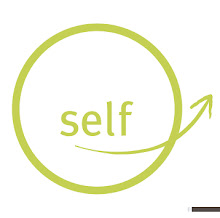I am currently taking part in Otto Scharmer's Global Classroom on Presencing. One exercise is a stakeholder interview that I have applied to the self context. My first interview has been with Mark who is a member of the self co-operative.
Purpose:
- Assess the value that self can create for its stakeholders
- Create a personal relationship to self stakeholders
- Apply my personal learnings from the MIT Presencing online course
1. What is your most important objective, and how can self help you realize it?
I am exploring different forms of social investment and I would like to find out where is the new border of a business framework working in the context of social ideas. self being a co-operative what is the difference/social benefit compared to a corporation or a limited company? self should make interesting social ventures visible, i.e. offering new relevant opportunities for investment. self is build on social investment: how can the venture self fulfil the interest of its investors?
2. What in the past has been your most useful contribution to your work?
Being invited to participate. Asking myself: what am I looking for? To have tools and a framework to go on that quest (e.g. conferences, methods, etc.). To find ideas and to continue working on them and having the possibility to mirror it with a group of people. To have an environment to meet people with useful but unexpected connecting ideas/thoughts. To enjoy working through my daily task list.
3. What criteria will you use to assess whether self’s contribution to your objective has been successful?
If I feel comfortable in the end: what creates that feeling? If I can draw personal conclusions and define key learnings that I can integrate into my day-to-day life.
4. What would constitute success for self; what would success look like?
Being interested in social investment: to have a manual/book “Principles of co-operatives in social entrepreneurship” (legal structure, org. structure, etc.). How does the decision-making process work in a co-operative? How can learnings be formalized?
What makes self successful? To be able to separate learning and doing into two processes. Both need to be professional but should not be mixed. To have cool projects in the portfolio: self is successful, if the self projects are successful. People are an important factor: the sustainable growth and maturity of the network is key. What makes the self community sustainable? How to create and implement a culture of a sustainable community?
Success is: finding a social innovative answer to “What is self doing with the profit of the co-operative?”
5. How could such a future success be prototyped and tested on a small scale, in order to “learn by doing”?
Engage with Pioneers of Change: there is no better sandbox to play in. Start a project and prototype it in Pioneers of Change. Create a project around best practices of business models from the self social ventures and create new business models. The project could be called “Business Models for Social Innovations”.
6. What would be practical next steps?
Free time: donate 4 hours a week to develop the prototype project further. Look for partners to start the project. For example: Jonathan from The Hub London.
7. After this conversation: what is your burning question now?
Does self want to make money?
A purpose is to create a network of social pioneers: building a community of social pioneers does not make money traditionally. How does community-building fit into the business context?
How does your motivation change, if you make money with your idealism?
Key question of this conversation: What will self do with the profits it makes ?


No comments:
Post a Comment